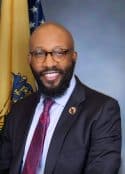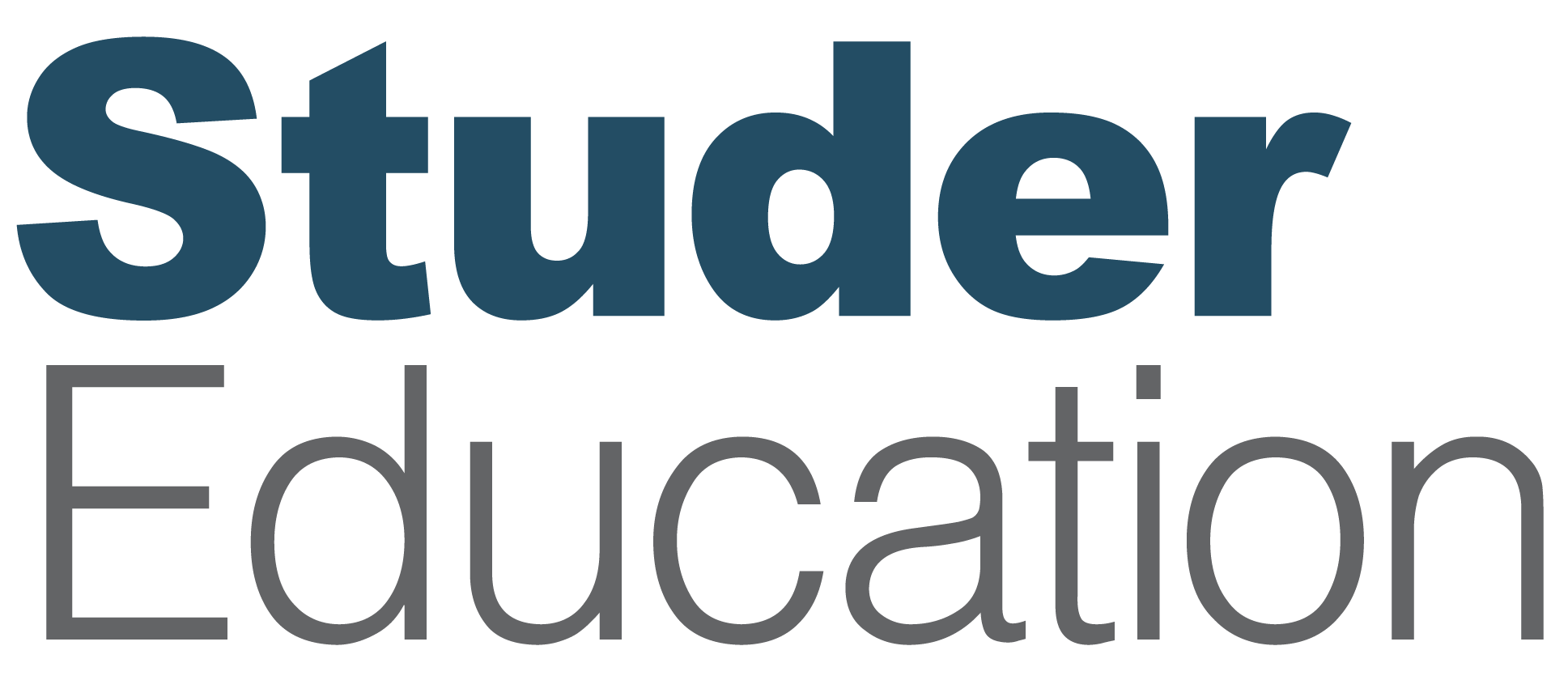
In the first part of a two-episode series, Dr. Janet Pilcher welcomes Superintendent Rashon Hasan of Plainfield Public Schools. With a unique background spanning education and business, Rashon shares how rounding has become a cornerstone of his leadership, building trust and continuous engagement across his district. Listen to hear how Plainfield leverages surveys to gather feedback from students, parents, and staff, directly informing district actions and sharpening alignment. Finally, Rashon emphasizes the importance of hearing from every voice in the district, ensuring community perspectives are at the heart of every decision.
This episode addresses questions such as:
- How does rounding contribute to developing leadership capacity?
- How can leaders “make the complex simple” when implementing improvement strategies like rounding and surveys?
- Why is it crucial for leaders to be vulnerable and reflective when receiving feedback during rounding?
Recommended Resources
DHP K12 Leadership Conference
Our Destination High Performance (DHP) events honor the transformative leaders shaping the future of education. These events highlight how leaders drive continuous improvement, spark innovation, and elevate education through ongoing leadership development and an unwavering commitment to excellence.
Latest Episodes
Rashon Hasan: Rounding has really become a cornerstone of how we lead and how we stay connected to one another.
[Intro music plays in the background.]
Introduction
Janet Pilcher: Hello everyone, welcome to the Accelerate Your Performance podcast. I’m your host, Dr. Janet Pilcher, founder and president of Studer Education.
Before I introduce my guest today, I want to extend a personal invitation to join me at the Destination High Performance K12 conference. If you haven’t registered yet, it’s not too late. Visit Studereducation.com/events or click the link in the show notes to get more information. I’d love to see you in Chicago on July 22nd and 23rd. You’ll love everything we have to offer there, from inspiring keynotes to interactive workshops, fresh insights to practical solutions. Bring your team to hear the principles and strategies we discuss on this podcast. You’ll get to see them applied, network with fellow leaders, and connect with others who are as committed to continuous improvement as you are. So I hope to see you there.
Today’s the first episode in a two-part series with Superintendent Rashon Hasan of Plainfield Public Schools in New Jersey. As you’ll hear in our conversation, he became superintendent after a decade of managerial experience spanning both education and business. He’s previously held roles as a school business administrator and even worked with Verizon as an operations manager. His diverse background and business acumen uniquely positioned him for the superintendency, which you’ll hear more about in this episode and the next.
Dive in with us today and discover how Rashon leverages rounding to build trust, gather feedback, and drive improvement. He’ll also share how rounding and surveys directly inform the district’s actions to sharpen alignment. Above all, you’ll hear how he champions the voices of students, parents, and staff, ensuring their perspectives are at the heart of every decision.
Let’s get started.
Interview
Janet Pilcher: So it’s with great pleasure that I welcome Rashon to our show today. Welcome, Rashon. So glad to have you with us.
Rashon Hasan: Thank you for having me, Janet. Thank you.
Janet Pilcher: Absolutely. So let’s talk about leadership, and I am excited to have you on the show. I know you’re a strong advocate for leader development with rounding, one of our greatest tactics, being a key component. So let’s start today, Rashon, if you would, and talk about what rounding looks like in Plainfield and how that’s been an effective tool for you and your team.
Rashon Hasan: When I was first introduced to the concept of rounding, I said to myself, “where has this tool being all my life, all my professional career?” But here at Plainfield Public Schools, rounding has really become a cornerstone of how we lead and how we stay connected to one another. It’s more than just a leadership tool, for us it’s become somewhat of a social expectation and it’s helped us provide greater access across the levels of our organization. It’s helped us build trust and also push forward with continuous engagement and doing so in a way that’s really natural and organic.
So personally, I’ll round regularly with our principals, central office leaders, members of my executive leadership team, and also support staff. The last two years, that has also included students who are members of my advisory council, whom I meet with on a monthly basis. And this also occurs when I simply visit a school or visit a division or department.
But rounding is informal by design, but it is also very intentional. During the rounding conversations, I ask the most critical questions. Always want to find out what’s working well with team members. I also use it as an opportunity to lean in to be a little personal with them to find out about the things that are happening in their lives, the things that matter to them. “How did your child do in the recent soccer tournament or basketball tournament?” Because those things are really important for building the culture and climate, but also showing our team members that we are invested in the things that are also important to them.
Then asking the team members specifically about what road blocks or barriers or obstacles or currently in their way. And that gives me the opportunity as a leader to determine whether there is alignment. So if the team member starts to talk about road blocks or obstacles that aren’t necessarily a result of a current project or goal that we’ve established as an organization, that lets me know that there may be some misalignment and it provides an opportunity to hit the reset button, if you will.
I’m also able to ascertain who’s been most helpful to that team member, which opens the door for recognition opportunities. So if a team member has been recognized or considered to be helpful, that provides me with an opportunity as the superintendent to now send them a communication, doubling down on their efforts, and to hopefully encourage them to continue to be collaborative and to be supportive of their team members.
I think we still have some work to do to continue to fine tune our skill set as we continue to implement rounding. But so far, I would say that the approach has done two very important things here in our school district. It’s developed leadership capacity, particularly amongst our building leaders. It’s helped them model how to listen with purpose and to also follow up with action, which is very important.
The second piece is it’s increased the trust and morale. You know, if staff members know that they’re being heard and that their feedback matters. They trust us, but they also want to know that we’re going to do the things that we say we’re going to do and that we follow up with them.
Janet Pilcher: Yeah, you know, Rashon, as you’re talking, we know that rounding is one of our most powerful tools and tactics. And I mean, if you think about what you’re saying and all the benefits, I mean, it’s just a simple, a relatively simple process where you make great connections with people and you’re proactive and intentional, as you said, with that approach. And it really is a wealth of information, which is what you’re sharing.
Rashon Hasan: I agree with everything you said, Janet. And I think as a leader, you have to be vulnerable when you engage in your rounding conversations, because you may find out some things even about yourself that you did not know.
Janet Pilcher: Yes.
Rashon Hasan: Or something that you weren’t necessarily prepared to hear. And, you know, what are you doing in those moments as a leader where team members telling you that the roadblock barrier obstacle is something that you put in place.
Janet Pilcher: Yes.
Rashon Hasan:That roadblock or barrier, you know, that scheduling change that you made, Superintendent.
Janet Pilcher: [laughs]
Rashon Hasan: I think it just also requires us to be vulnerable, humble in the process.
Janet Pilcher: It does. And, you know, I love, I mean, I just love your approach to that. And, you know, I’ve found that when I round, sometimes people will say, you know, just kind of prepare you to sometimes, “well, I’m going to give you some, you know, I hope you’re okay with the way I’m going to give you this feedback.” And that’s what it’s intended, but I find, and I’m sure you do too, people are so professional in their interactions when they round with you.
Rashon Hasan: I have experienced that from team members and there was one, I would say, one thing that flowed out our rollout of rounding initially is that team members thought that it was something that had to be formal. That was probably the biggest piece of feedback we received from our building leaders was that it was difficult to schedule time around. We’re like, “no, no, no, you don’t schedule time. You get the team member in the break room, walk them to their next class during the transition.” That’s the opportunities, very organic. And it also helps lower the anxiety.
Janet Pilcher: Yes.
Rashon Hasan: The team member receiving an email saying, “hey, I need to schedule a meeting with you at one o’clock on this day.” “Do I need a union rep to be in this meeting? What are we going to talk about?”
Janet Pilcher: [laughs] Yeah, that’s so good. And it’s just a natural part. I mean, we’re going to speak to people anyway. So we just really build that into our natural way. So I love the way you all are using it and the benefit that you have.
The other thing that we have found that you’re doing is the surveys. Another way to build that emotional bank account, get the feedback and use the feedback is from the surveys that you’re doing with parents and employees and students. Can you talk a little bit about what you’ve learned from that process and the feedback that’s driven change for you and your district, Rashon?
Rashon Hasan: Absolutely. I’ll start by saying, I believe that the engagement surveys for the parents, student, and employee experiences, probably one of the best decisions we’ve made as an organization. And not that we weren’t engaged in serving our staff and the members of our school community, but we took a step back. We’re no longer the doers or the implementers of the survey experience. We’re on the receiving end and really waiting to receive the results because we’re here in listening mode. And I think it’s helped establish a greater level of trust throughout the organization because the team members know that the information that they’re entering is not coming to us, right? So no one’s here from our team filtering out information. We receive it in its truest form.
And we’ve learned, learned a few things during the process.
First and foremost, employees want more timely communication. And that’s across the organization. They want it from their school leaders and they value the clarity around expectations and recognition of their work. So with this piece of information, we’ve now established the cadence for cascading messages throughout our organization. And one thing we’ve heard at the director level and above is that when I wrap up an executive leadership team meeting, team members at the director and executive director level would like a briefing of the decisions that may have been made, and they want to they want to receive it in a timely manner. So we’ve now set up a cadence that allows for each of my direct reports to send out that communication, but it has to go out from each person at the same time so that one department doesn’t feel that they’ve been left out or that they’re less than as it relates to the timely receipt of those communications.
We’ve learned from our parents that they appreciate tools that we’re using in the organization to enhance communication. We’ve implemented a tool called Parent Square. So this is our new communication platform and tool. And those parents, while they appreciate it, they want even more consistency in messaging from our schools. So we have weekly newsletters that are sent out. There are announcements, but we’re able to track the data in the system. It tells us which schools are sending out messages more frequently.
The parents are saying, “well, I know that school X sends out two communications per day, but in my school, I may only be receiving two communications per week.” We’ll work with our team and just to enhance the use of that tool.
Rashon Hasan: And lastly, for our students, students, they are absolutely hungry for voice and connection.
Janet Pilcher: Yeah.
Rashon Hasan: They want to be heard. They want to be connected. They want to understand the decisions that we’re making across our organization and how to impact them. And they also want to know that their feedback is helping shape the school climate initiatives and enrichment programs as an example.
So for us, the surveys, they’re not just a data point. They’re a mandate for our leadership team and our school community to act. So we’re going to use them to sharpen our alignment to the strategic plan. We make sure we have a connection to our performance cycle and to our goals. And I think that’s really helped us ensure that team members are taken seriously. The review of our survey results is a part of our PDSA cycle. And we go through a point of reflection. And I think that’s really important to reflect in our school communities. When you’ve heard from your constituents or your stakeholders, don’t be so quick to respond.
Janet Pilcher: Yeah.
Rashon Hasan: Listen, sit with that information and be intentional about how you respond to that. Yeah.
Janet Pilcher: Yeah. You know, the way that you are actually working with your team to implement, I mean, it really is kind of textbook, Rashon. And I just love the way that you are talking through the specifics of how you use it, looking at the feedback, driving to action. And when I hear you, this is the way it’s so great because when I hear you talk about how you and your leaders are applying it, you’ve really, we always talk about, Rashon, making the complex simple, you know, and what we’re talking about is really not, it’s not complicated in terms of understanding, but it’s not easy to do. But the way you communicate it really makes it, you’ve simplified it in a way that people can understand it. And it’s not just a compliance or check off. It really adds value to what you’re doing each and every day.
Rashon Hasan: No, it absolutely does. And I think for us to bookend this school year as a leadership team, our final PDSA cycle conversation took place today. And the data point that we focused on were our survey results. That was the conversation.
And I thought it was very timely. You know, we closed out the school year officially yesterday with our high school graduation, but today was the first day that, from a leadership standpoint, we don’t have teachers in the buildings. There were no students in the buildings. The school district is quiet right now.
So when you talk about, you know, having those moments of reflection, I think it created the atmosphere for us to just be still, be in the moment, the process, what we’ve done after the first round of surveys, everyone, every school and team developed action plans. Did you see any, any growth, any movement based on your implementation of those action plans? Did you see any decreases? And if so, what were they attributed to?
Now I see some very direct connection to correlations to feedback that I received from the students on my advisory council during our monthly meetings or during our rounding conversations. And there are two areas that I want to ensure that our team focuses on because students, I think, look at these particular areas of school operations a little differently than adults do with some instances. And that is food services. The quality of food and also the cleanliness of spaces throughout the school community.
You know, as a teacher, you may come into the classroom and you may be in that one classroom all day for the most part, but a student moves throughout the entire building and they will see the structure of the building, the cleanliness of the facility in a different way because they’re just in so many spaces transitioning from a gym class to an art class, music class back to their home.
So they’ve given us some, again, great information, but it also has put us on notice as a leadership team that our students are definitely watching.
Janet Pilcher: Yeah, that’s right. And, you know, that their voice does matter in what you do. And when they see that, that will energize them and motivate them in so many different ways. You know, we just wonder why we haven’t really focused on that all our lives sometimes, right?
Conclusion
[Outro music plays in the background.]
Janet Pilcher: It’s inspiring to hear leaders like Rashon emphasize the voice of their students, their feedback, even on things like cleanliness and food services, genuinely taken into the account of leadership in Plainfield.
Thank you, Rashon, for showing us how you make the complex simple with rounding, sharing your mindset about how the survey process reminds us of the importance of being still and reflective. This clarity will be crucial as we work to make next school year the best one yet.
Next week, Rashon and I will dive even deeper into his leadership approach shaped by his unique background in finance and operations. It’s a story to hear. Given his history as a past school board president, I think you’ll find his insights on fostering strong relationships between superintendents and boards to be especially helpful. So I appreciate Rashon’s conversation with us and helping us see things from a little different perspective.
So I hope that you enjoyed our time today and always make sure you’re following the show on Apple Podcasts or Spotify so you don’t miss the rest of the conversation that we’ll have next week.
As always, I thank you for tuning into this episode of the Accelerate Your Performance podcast. I look forward to seeing you next time as we continue to work together to achieve organizational excellence. Have a great week, everyone.
Featured Guests

Rashon Hasan, Ed.S.
Superintendent • Plainfield Public Schools, NJ
-
Janet Pilcher President








